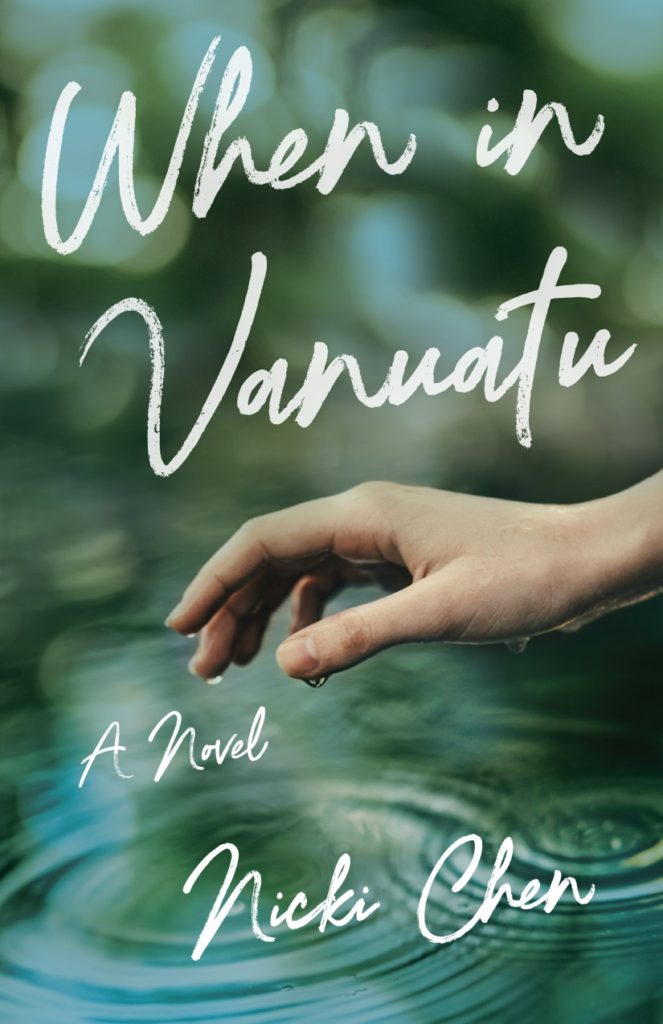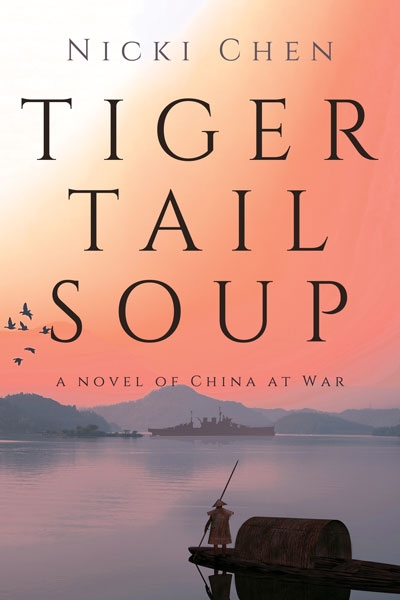Which would you be?
If your city or country fell into enemy hands, what would you choose?
* Would you lie low, keep a low profile and stay out of trouble?
* Would you escape to another city or country?
* Would you go along to get along, looking for ways to benefit from the new status quo?
*Or would you rebel, join the resistance and struggle to win your country or city back?
And what if you were a teacher, a writer or a poet? Would that further complicate your decision? Would you have a special responsibility to your students and readers to uphold patriotism and morality?
Shanghai, China—1937-1945
 Those were the questions writers in Shanghai had to confront after their city fell to the Japanese on November 12, 1937. Even those who lived in the foreign areas (which were not under direct Japanese control until December 8, 1941) had to worry about underground Nationalist agents and the Japanese secret service. Poshek Fu wrote a fascinating and well researched book about the dilemma these writers faced: Passivity, Resistance, and Collaboration: Intellectual Choices in Occupied Shanghai, 1937-1945 published by Stanford University Press.
Those were the questions writers in Shanghai had to confront after their city fell to the Japanese on November 12, 1937. Even those who lived in the foreign areas (which were not under direct Japanese control until December 8, 1941) had to worry about underground Nationalist agents and the Japanese secret service. Poshek Fu wrote a fascinating and well researched book about the dilemma these writers faced: Passivity, Resistance, and Collaboration: Intellectual Choices in Occupied Shanghai, 1937-1945 published by Stanford University Press.
The trouble with being a writer under occupation is that everything you write, whether political or not, can be interpreted as either giving in or resisting. The writer is either encouraging his readers to give up hope or he’s inciting them to rebellion—in which case he could be arrested, tortured or even executed.
Writers who also teach never know which of their students will repeat or misrepresent their words and to whom.
The men Poshek Fu discusses had families to protect, and they weren’t always healthy. Their newspapers and journals were censored and shut down. Agonizing over their choices and wrestling with feelings of guilt at not living up to their patriotic ideals, they struggled to survive, to keep their families safe and to find a way to write. They wrote in Shanghai’s foreign-published newspapers and for modern theater productions, including short “resistance plays” that were performed on the street. Or, avoiding politics altogether, they wrote about beauty and personal morality.
Collaborators
After the fact, we brand collaborators as villains, and maybe that’s how they deserve to be remembered. But I wonder what it must have been like for the Chinese, not knowing how things would turn out. The Japanese had won too many battles. Wasn’t it reasonable for them to believe their enemy would conquer all of China and rule it into the foreseeable future? Before Pearl Harbor, they had no way of knowing that the United States would enter the war and that the Japanese would be defeated in 1945.
When does resistance become irrational and collaboration with the new rulers become sensible?
An example that comes to mind is Alto California (California, Nevada, Arizona, Utah, western Colorado and southwestern Wyoming). It hasn’t belonged to Mexico since 1848. Maybe it never will again. At some point, for most people, resistance stopped and “collaboration” began.
Writers on Gulangyu
 The setting for my novel, Tiger Tail Soup, is Kulangsu (now called Gulanyu), a small island located 678 miles south of Shanghai. It wasn’t the literary and intellectual center that Shanghai was. But it had teachers and, presumably, a number of writers. When the Japanese invaded and occupied their island, they, too, had to choose whether to flee or to resist, collaborate or remain passive.
The setting for my novel, Tiger Tail Soup, is Kulangsu (now called Gulanyu), a small island located 678 miles south of Shanghai. It wasn’t the literary and intellectual center that Shanghai was. But it had teachers and, presumably, a number of writers. When the Japanese invaded and occupied their island, they, too, had to choose whether to flee or to resist, collaborate or remain passive.
What would you do?
What do you think your husband/wife, sister or brother would do?
(If you enjoyed this post and you haven’t already subscribed, hit the orange subscribe button at the top. And don’t forget to confirm when WordPress sends you an email.)



Thanks for writing on this topic. This brings ‘Empire of the Sun’ the movie back to life. Life in Shanghai and the Jewish quarters in Shanghai can be mentioned.
Collaborators are usually fascists like Wang Jing Wei and the cops or double agents.
In reality, people don’t really write about the cops being ‘Collaborators’ much. Places such as Vichy France, Belgium, Holland,Norway,China,Vietnam,Dutch Indies,Malaya.Singapore and other occupied places don’t have much history on cops who were collaborators.
Collaborators were actually cops who snitched on others to survive. They changed into new uniforms when new government came into place.Civil servants stayed on and former government left in a haste.
Resistance fighters don’t get to live long enough. to tell their stories.
There is no correct answer and survival matters. United we conquer!
Many of us have never had to face these difficult choices. I sympathise with anyone who did. I imagine that during wartime, emotions run high–both fear for one’s survival and also love of one’s country.
Fortunately some resistance fighters do live to tell the tale. I have a friend from Manila who knows several resistance fighters from WWII.
Thank you, Choi, for your comments. You’re right, “Empire of the Sun” which was set in Shanghai was a perfect example of life during the Japanese Occupation.
I have faced “similar” kind of situation.
Chinese people were attacked and their houses got raided in May 1998.
My hometown is located in North Sumatra. Its capital city, Medan, was one of the places with most victims. I live in a small town located less than 15 miles from this city.
Many Chinese people fled the country (most of them exiled to Malaysia and Australia). Those who have money and owned many properties “hired” people to protect their family members and properties.
Just like most families, mine had to come up with plan A to Z. We were “taught” to fight and escape, depending on the situation. I was very young, but I had to lead my four younger siblings.
Our grandparents put money in plastic bags and taped it onto our body. We wore thicker clothes to hide it. We were told to gather in certain points just in case we got separated.
Fortunately, something unexpected happened when the raiders were coming. All Chinese folks joined forces, even the young ones and women.
Instead of hiding, we confronted them with all the “weapons” we could find (frying pan, dumbbells, you name it – we had it!)
The raiders got scared and they left our small town alone.
Years later, people still remember who is what. We got “cowards” (those who fled), “people-buyer” (those who hired “security guards”), “stupid money spender” (those who stayed abroad, spent all their money and returned to Indonesia penniless) and all sorts of silly nicknames.
I did not label people with those nicknames. I simply thought that everybody got their own ways of surviving.
If you are interested to know more about the horrible event, you can check it out on Wikipedia: http://en.wikipedia.org/wiki/May_1998_riots_of_Indonesia
Back to your article,
If I had lived in China during the Japanese aggression, I would just do anything to survive – with one exception. I would never be a collaborator.
I don’t think there is anything worst than being a traitor in Chinese culture, especially by collaborating with the “villains”. It’s a MAJOR social & cultural suicide! People would curse the person and his ancestors. His children would carry his “blackened name” and socially excommunicated.
Do you know that some Chinese folks (especially the elders) still call those people who collaborated with the Japanese as “traitorous dogs”?
(Whew! This must be the longest comment I have ever left in any blog or site! I hope you do not mind!)
Thank you so much, Hari, for your comment. I hope everyone who comes to this page will scroll down to the comments. Everything that I wrote was just speculation. You have actually experienced the situation. I don’t think most of us realize how strong feelings are and how long they last, not only against the enemy force but also against those who didn’t behave well at the time. Thank you again for sharing your first-hand experience.
I think I should be the one who thank you for writing this interesting topic/ post (and many others)! 😀
By the way, I recommend your blog here:
http://imagineerebooks.wordpress.com/2013/10/19/blog-browser-day-19th-october-2013/
I don’t know if you got a ping back or a notification, so I think that I should just tell you. 🙂
Yes, I did get a ping back,Hari, but I didn’t know where it came from. Thank you.
I enjoyed reading this post a lot and I think your comment is worth a lot, Hari, since you’ve experienced having to make a choice like this first hand. As Austrians, we also often think about what we would have done during WWII. Some people like to talk about how they would have never done these atrocious things, but I’m more realistic and I think that in circumstances like those of WWII, you’d actually never know how you’d react until you’d find yourself in a situation like that (which of course I hope will never happen). And also for the question raised, I wouldn’t be able to choose one single answer with any certainty.
That’s what I thought, which is why I did not want to label anyone who ran away or did whatever they did to survive. 😀
Yes, I’ve often thought about this dilemma – tried to imagine if I’d been French or Dutch or Norwegian, Danish, so many of those countries occupied by Hitler… and how by resisting you put your family in danger, as the Nazis always punished the families too…
Starvation for your children, or collaborating with the enemy? What a choice – and that was often the choice in occupied France…What is bravery in these circumstances….a huge subject….
Reading Poshek Fu’s book, I was struck by the added burden Shanghai’s writers felt. Like everyone else, they wanted to stay alive and protect their families. But they also knew that people were counting on them to “beat wardrums from the side lines” and keep alive the spirit of resistance. At the same time, the occupying force was watching them. Everyone on both sides recognized the power of words and ideas, something you demonstrate so well, Valerie, in your writing.
What a fascinating question you raise. This is a good example of not judging someone until you have walked a mile in their moccasins?
Here in the United States most of us have never “walked a mile in (the) moccasins” of those whose country has been occupied by the enemy. It’s hard to imagine what they went through and the choices they struggled with. Your comment, Joani, brings to mind the situation of Native Americans.